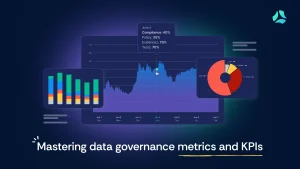
Business technology innovation has always revolved around accounting, especially since blockchain, artificial intelligence (AI) and robotic process automation (RPA) came into existence. And this trend continues even till today with all the three becoming ubiquitous.
Accounting system innovations are changing accounting workflows and practices offering many benefits such as faster turnaround times, more accurate results and reduced manual errors.
Artificial Intelligence (AI) and Machine Learning (ML)
Artificial Intelligence (AI) is what allows computers to behave like humans. AI is behind chatbots, predictive text engines, language translation apps on Instagram, photo-tagging functions on Twitter accounts or self-driving vehicles plying the streets right now.
Machine learning (ML) refers to a subfield of artificial intelligence (AI), which enables computers to learn without the requirement for explicit programming. ML algorithms use machine learning algorithms to find patterns within data that they see fit then take appropriate actions accordingly; these include: recommendation engines, visual search, inventory/supply chain optimization demand forecasting personalized offers/experiences/churn prediction; in healthcare it has been used for faster drug development cycles; higher diagnostic accuracy; real-time patient monitoring; continuous accounting reframes traditional accounting workflow so much better than ever before by reducing error-prone manual processes and delivering quicker more accurate results with lower error rates!
Cloud Computing
Cloud computing provides a means by which firms specializing in accounting can safely host their software applications and data remotely on servers accessed through any device connected online making it secure from cyberattacks at low IT costs with remote access to information. Cloud computing has become an integral part of modern accounting firms. It comes with numerous advantages including decreased IT costs coupled with access from any location.
Zapier as one of the providers of accounting solutions can also enable accountants to work from non- or low-code using tools like Zapier that are fundamental for meeting client needs while optimizing productivity. Moreover, those tools will fasten the processes by removing manual workarounds that are common in situations where multiple software solutions are employed. By automating activities via app integrations such as Zapier, accounting solutions providers can automate tasks aiming to breakdown information silos within customers’ financial data silos – a very important thing for any industry whose clients need control over their own security of data.
Remote Access
In addition, under COVID-19 pandemic, remote working has become more popular among different sectors including accountancy. Accounting professionals can now work from anywhere in the world with the use of technology and tools available today, while also balancing personal needs and firm’s goals effectively.
Cloud-based accounting solutions store data in one central repository, making it accessible across devices. It means that there is no more need to make backups manually since all information is updated on-the-go.
Automation tools like optical character recognition (OCR) and robotic process automation (RPA) help streamline accounting processes by automating time-consuming tasks like data entry, reconciliation and reporting. These technologies not only improve productivity but also minimize human errors. Besides, accountants become better placed at offering valuable financial advice.
Automation of Routine Tasks
Modern accounting involves deployment of numerous tool sets, software systems and platforms for automation of many manual operations; this cuts back on reliance on manual execution while increasing efficiency accuracy compliance within finance practices.
Accounting automation is a very valuable asset, what with data entry and reconciliations, it streamlines all processes of accounting while freeing up time for other projects.
By using cost tracking tools and budget analysis reports you can evaluate how much automation saves in operating costs as well as improving on team morale, productivity and reducing error rates. Before investing in new technological advances make sure to understand the benefits fully so as to make decisions that may result to long term commitments.
Real-Time Access to Financial Data
Modern accounting software makes use of machine learning and artificial intelligence for accurate data analysis, thus producing instant financial reports that empower stakeholders with real-time business intelligence for enlightened decision making. Additionally, compliance becomes simplified by automation hence no mistakes from financial systems.
Automation further drives down operational costs while increasing efficiency in accounting processes such as AI-powered algorithms automatically reading journal entry requests, analyzing their nature, identifying accounting heads, preparing entries according to predefined approval workflows and posting them accordingly.
In order for companies to survive in today’s fast paced business environment they must come up with new ways of doing things so that they can be ahead of other players in the industry; apart from this there are other reasons why they need to embrace innovative work cultures which would facilitate collaboration among employees within an organization (Gupta et al., 2005). However, this calls for an entrepreneurial mindset which requires more collaborative practices within the workforce culture thereby involving shifting mindsets or adopting different work cultures for keeping pace.






